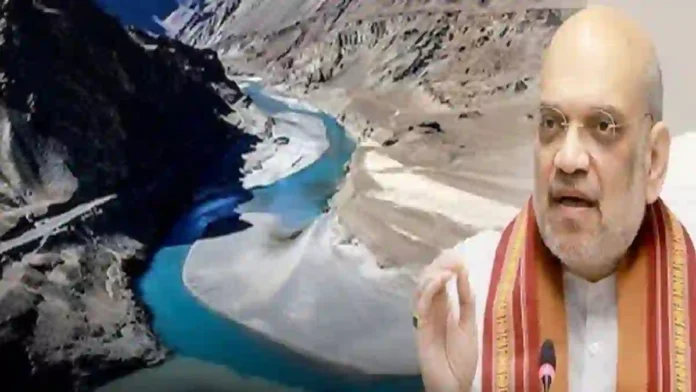India has made it clear that it will not reinstate the Indus Waters Treaty with Pakistan, which was suspended following the April 22 terror attack in Pahalgam, Jammu and Kashmir. The attack, which killed several civilians, including tourists, was backed by Pakistan-based groups, though Pakistan has denied any involvement. In an interview published Saturday in the Times of India, Union Home Minister Amit Shah ruled out any possibility of resuming the 1960 treaty, terming it unfair to India.
“It will never be restored,” Shah said. “We will take the water that was flowing to Pakistan to Rajasthan by constructing a canal. Pakistan will be starved of water that it has been getting unjustifiably.”
The Indus Waters Treaty, brokered by the World Bank, allocated the three western rivers (Indus, Jhelum and Chenab) to Pakistan and the three eastern rivers (Ravi, Beas and Sutlej) to India. It also provided for cooperative arrangements on hydropower and irrigation between the two neighbours.
India suspended the treaty after the Pahalgam attack and subsequent cross-border escalation, the deadliest standoff between the two nuclear-armed states since Kargil in 1999.
Pakistan, which has called the treaty a “no-go area”, maintains that it cannot be unilaterally scrapped. “The treaty can’t be amended, nor can it be terminated by any party unless both agree,” Pakistani Foreign Minister Ishaq Dar had said last month.
Read- India Confronts Twin Drone Threats From Pakistan And Bangladesh
Read- Should India Be Worried About Pakistan’s Chinese J-35 Stealth Jets? A Strategic Analysis
However, India remains firm on its position. Officials say that Pakistan has repeatedly used terror as an instrument of state policy, and that India’s continued adherence to the treaty in such a context is untenable.
The suspension of the pact is one of several steps taken by India in response to the April 22 attack, as the government moves to assert both diplomatic and infrastructural control over critical resources flowing through Jammu and Kashmir.
Agencies




